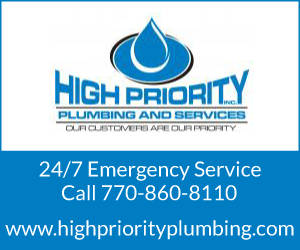 If you are buying a home, you might be one of over 70% of the people who need financing. While there are some special programs for first-time buyers, etc., they will be covered next month or you can call my office for more information.
If you are buying a home, you might be one of over 70% of the people who need financing. While there are some special programs for first-time buyers, etc., they will be covered next month or you can call my office for more information.
It’s important to understand that you can make some serious mistakes when choosing a lender program and this article will cover the most common programs currently in use today and their differences. They are listed in the order of most to least frequently used.
Fixed Rate Loan
The most common type of loan, a fixed-rate loan prescribes a single interest rate—and monthly payment—for the life of the loan, which is typically 15 or 30 years.
These are best for homeowners who seek predictable payments and stable interest rates, and who aren’t planning to move for five or more years. You pay a fixed amount for a set number of years. The rise and fall of interest rates like the increases that have followed the Federal Bank’s rate actions won’t change your loan, so you’ll always know what to expect. If you think you’ll move fairly soon, you may want to consider the next option.
Adjustable Rate Mortgage
ARM loans offer interest rates typically lower than you’d get with a fixed-rate loan for a period of time—such as five or 10 years. But after that, your interest rates (and payments) will adjust, typically once a year, roughly corresponding to current interest rates. So, if interest rates shoot up, so do your monthly payments; if they plummet, you’ll pay less.
Right for: Home buyers with lower credit scores. Since people with poor credit typically can’t get good rates on fixed-rate loans, an ARM can nudge those interest rates down enough to put homeownership within easier reach. These loans are also great for people who plan to move and sell their home before their fixed-rate period is up and their rates start vacillating.
FHA Loans
While typical loans require a downpayment of 20% of the purchase price of your home, with a Federal Housing Administration loan, you can put down as little as 3.5%.
Right for: Home buyers with meager savings for a down payment. These loans come with several caveats. First, most loans are limited to $417,000 and don’t provide much flexibility. Rates are typically fixed, with either 15- or 30-year terms. Buyers are also required to pay mortgage insurance – either upfront or over the life of the loan—which hovers around 1% of the cost of your loan.
VA Loans
If you’ve served in the United States military, a Veterans Affairs loan can be an excellent alternative to a traditional mortgage. If you qualify, you can score a sweet home with no money down and no mortgage insurance requirements.
Advantageous for: Veterans who’ve served 90 days consecutively during wartime, 180 days during peacetime, or six years in the reserves. That said, the VA has strict requirements on the type of home you can purchase. It must be your primary residence and it must meet “minimum property requirements” (that is, no fixer-uppers allowed).
USDA Loans
USDA Rural Development loans are designed for families in rural areas. The government finances 100% of the home price—in other words, no down payment necessary—and offers discounted interest rates to boot.
Suitable for: Families in rural areas who are struggling financially. These loans are designed to put homeownership in their grasp. The catch? Your debt load cannot exceed your income by more than 41%, and, like the FHA loan, you will be required to purchase mortgage insurance.
Bridge Loan
Also known as a gap loan or “repeat financing”, a bridge loan is an excellent option if you’re purchasing a home before selling your previous residence. Lenders will wrap your current and new mortgage into one payment; once your home is sold, you pay off that mortgage and refinance.
Right for: Homeowners with excellent credit and a low debt-to-income ratio, and who don’t need to finance more than 80% of the two homes’ combined value. Meet those requirements, and this can be a simple way of transitioning between two houses without having a meltdown—financially or emotionally—in the process.
They are professionals at Deon Cannon Realty – and they’re here to serve your real estate needs. Call them at (404) 630-2985 and they’ll work with you right now to develop a strong and sensible plan to sell your home or find the one that’s absolutely perfect for you.
























No Responses to “Deon’s Do’s and Don’t’s for Real Estate…Finding the Right Financing for Your Home”